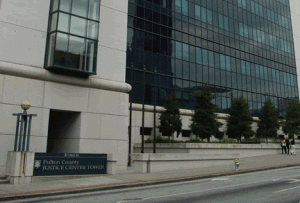
The easy answer to the question I pose above is an emphatic “Yes!” Right? For any homeowner to have his or her home wrongfully foreclosed upon and scheduled to be sold at auction on the Courthouse steps, as we still do here in Georgia through nonjudicial forclosures ( a topic which deserves it’s own blog), would create enormous, undue emotional stress. Your home is, more than likely, the largest purchase you have ever made and has the highest financial investment value of anything you have ever personally invested in. We call our home our “castle.” So when a corporation wrongfully forecloses on your castle, your home, trying to sell the house right out from under your homeowning feet, don’t you think this would just naturally cause you some undue stress? Worrying whether you would lose your house? Lose your biggest investment? Lose the roof over your and your family’s heads? Should whoever did so wrongfully foreclose on your house have to face justice in the form of a jury?
One would thing so, but when it comes to our ever-increasing conservative Eleventh Circuit Court of Appeals, the answer, unfortunately, seems to be “not so fast.” In a recent 11th Circuit opinion, the Court held although a person in such a position of being wrongfully foreclosed upon may very well have a claim of intentional infliction of emotional distress, the amount of proof one must offer just to get past the judge and get to a jury may be impossible to meet, thus ending the homeowner’s ability to seek redress for the wrong. In Lodge v. Kondaur Capital Corp., et. al, issued on May 8, 2014, the Eleventh Circuit (of which Georgia is a part) held that the plaintiffs, the Lodges, had not offered enough “proof” of emotional distress suffered by them at the thought of their home being wrongfully foreclosed upon. The Lodges, at the time, were in bankruptcy. Federal bankruptcy laws forbid foreclosure upon a home that is in bankruptcy. The Defendants in Lodge willfully violated this law, known as the “Bankruptcy stay” and moved to foreclose upon the Lodges home, even though that was the very reason the Lodges had filed for bankruptcy.
The Court found against the Lodges, denying them the right to have a jury decide their case. The Court said the Lodges hadn’t offered the Court enough proof of emotional distress. But whether there is sufficient proof of a claim should be a question to be decided by a jury, not three appellate judges. As the attorney for the Lodges, Ralph Goldberg, noted in response to this narrow opinion, “I don’t understand why anybody would not think that…hearing that your house is about to be foreclosed upon is significant emotion distress. It seems to me they’re out of touch with how normal people lead their lives.”
 Atlanta Injury Lawyer Blog
Atlanta Injury Lawyer Blog












